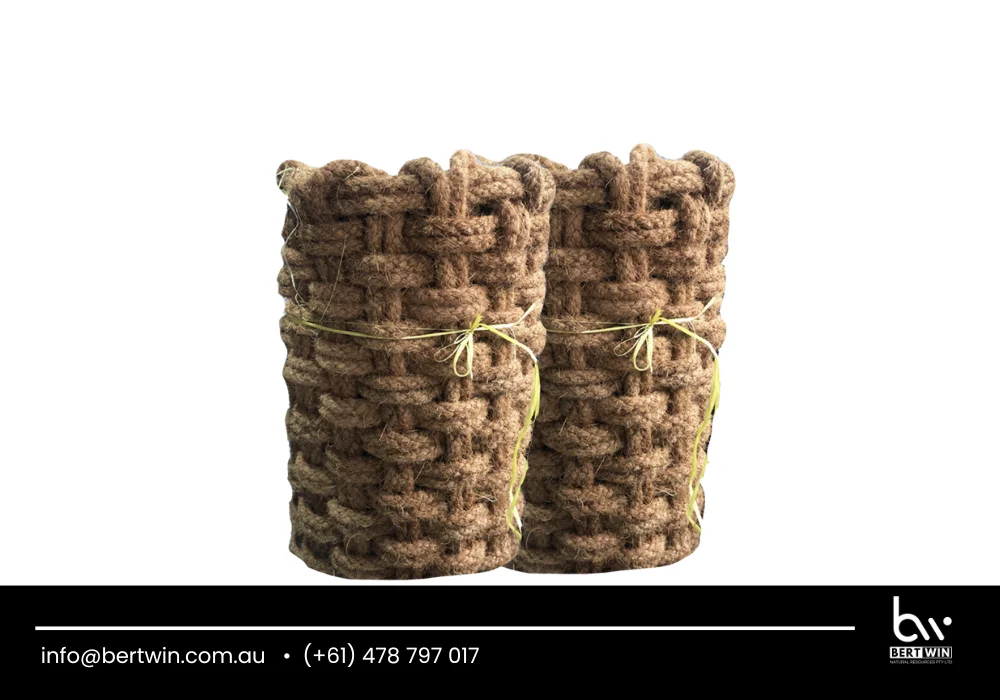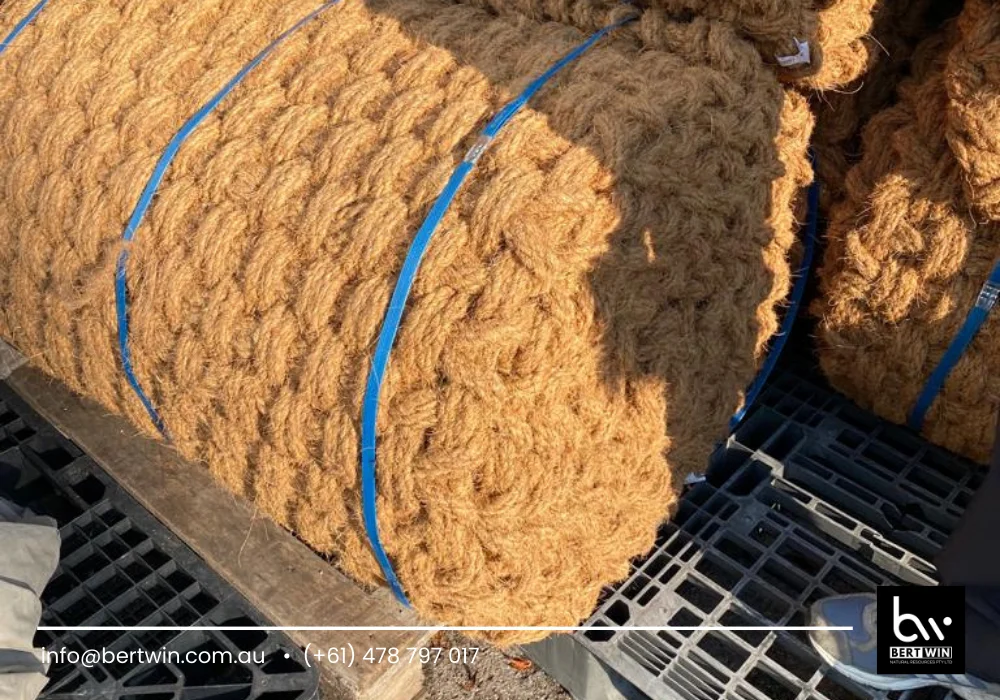What Is a Biodegradable Coir Mat?
A Natural Solution for Erosion Control and Soil Protection

A biodegradable coir mat is a natural ground covering made from the fibrous husk of coconuts. Widely used in landscaping, agriculture, and environmental restoration, it serves as an eco-friendly alternative to synthetic geotextiles. From the very first application, a biodegradable coir mat works by shielding soil from erosion, retaining moisture, and promoting plant growth—while gradually decomposing into the earth without harming the environment.
These mats are especially valuable in areas where vegetation is sparse or the land is prone to degradation. By acting as a protective barrier, they give plants the time and support needed to establish roots, all while maintaining the soil’s structure and reducing runoff. The coir fibers allow for water and air penetration, which are essential for healthy plant development. What sets this product apart is its ability to break down naturally over time, returning nutrients to the soil and eliminating the need for disposal.
Benefits of Using a Biodegradable Coir Mat
Why Choose Coir for Eco Projects
Choosing a biodegradable coir mat offers a wide range of advantages, both for the environment and for project efficiency:
- Eco-Friendly Material: Coir is derived from a renewable resource—coconut husks—which would otherwise be waste. This makes the mat a sustainable choice from the start.
- Biodegradable: Unlike plastic mesh or synthetic netting, coir decomposes over time, enriching the soil instead of polluting it.
- Excellent Erosion Control: It holds soil in place on slopes, embankments, and riverbanks, minimizing sediment runoff.
- Moisture Retention: Coir fibers hold moisture while still allowing excess water to drain, supporting seed germination and root health.
- Root Penetration Support: Young plants can grow through the mat’s mesh-like structure, anchoring themselves securely in the soil.
- UV Resistance: Though biodegradable, coir is naturally resistant to sunlight, meaning it won’t break down prematurely under the sun.
- Durability: Depending on the environmental conditions, coir mats can last between 9 months and 3 years, allowing ample time for vegetation to take hold.
Whether for small garden beds or large-scale reforestation efforts, the biodegradable coir mat combines performance with eco-conscious design, reducing long-term maintenance and material waste.
Where Biodegradable Coir Mats Are Commonly Used
Practical Applications in Various Sectors
The versatility of a biodegradable coir mat allows it to be used in a range of industries and environments. Here are some of the most common use cases:
- Slope Stabilization: On hillsides and embankments, the mat prevents landslides and soil loss during heavy rains.
- Riverbank and Coastal Protection: Coir mats help protect delicate ecosystems by stabilizing banks and minimizing erosion caused by water flow.
- Reforestation Projects: Ideal for helping new plants take root in deforested or degraded areas.
- Construction Sites: Used as a temporary soil covering to prevent dust and sediment displacement.
- Agricultural Fields: Provides a controlled environment for seed germination and crop establishment, especially in sloped farmland.
- Landscaping and Urban Gardening: Perfect for decorative garden beds, rooftop gardens, and pathways where soil retention is essential.
Because of its flexibility and natural properties, a biodegradable coir mat fits seamlessly into both temporary and permanent landscaping solutions.
Types and Selection Criteria for Coir Mats
Choosing the Right Mat for Your Project

Not all coir mats are created equal. When selecting the best biodegradable coir mat for your needs, several factors should be taken into account:
- Weight and Thickness: Heavier mats (800–1200 g/m²) offer more stability and longer life, ideal for steep slopes or high-erosion areas. Lighter mats are suitable for flatter terrain and short-term projects.
- Weave Type: Open weaves allow more light and air to reach the soil, while tighter weaves offer more protection in harsh conditions.
- Pre-Seeded Options: Some coir mats come embedded with grass or wildflower seeds, simplifying installation and ensuring uniform growth.
- Backing Material: While most mats are purely natural, some may include biodegradable backing for additional strength or moisture retention.
- Installation Environment: Consider factors like rainfall, wind exposure, and soil type when choosing a mat that will perform well in your specific conditions.
With the right type selected, proper installation is key. Mats should be securely pinned to the ground, with overlapping edges to prevent shifting. Over time, the mat integrates into the natural landscape while vegetation takes over its stabilizing role.
Sustainability and Long-Term Impact
Helping Nature Heal Naturally
Using a biodegradable coir mat is not just an environmentally responsible choice—it also contributes to long-term soil health and sustainability. By using agricultural by-products and avoiding synthetic alternatives, these mats align with global efforts to reduce carbon emissions, eliminate plastic pollution, and restore ecosystems.
They support biodiversity by encouraging native plant growth, reduce the need for chemical erosion control, and offer a low-maintenance solution that works harmoniously with the environment. In contrast to plastic netting, which can entangle wildlife and remain in the soil for decades, coir gently fades away, returning to the earth from which it came.
Conclusion
Nature’s Answer to Soil Protection
A biodegradable coir mat is a simple, effective, and sustainable solution for erosion control, vegetation support, and soil health improvement. Its natural properties and versatile applications make it suitable for everyone—from farmers and landscapers to engineers and conservationists. By choosing coir, you’re not only investing in your land but also in the planet’s future.
For further information, you may contact WhatsApp at (+61) 478797017 or via email at info@bertwin.com.au
